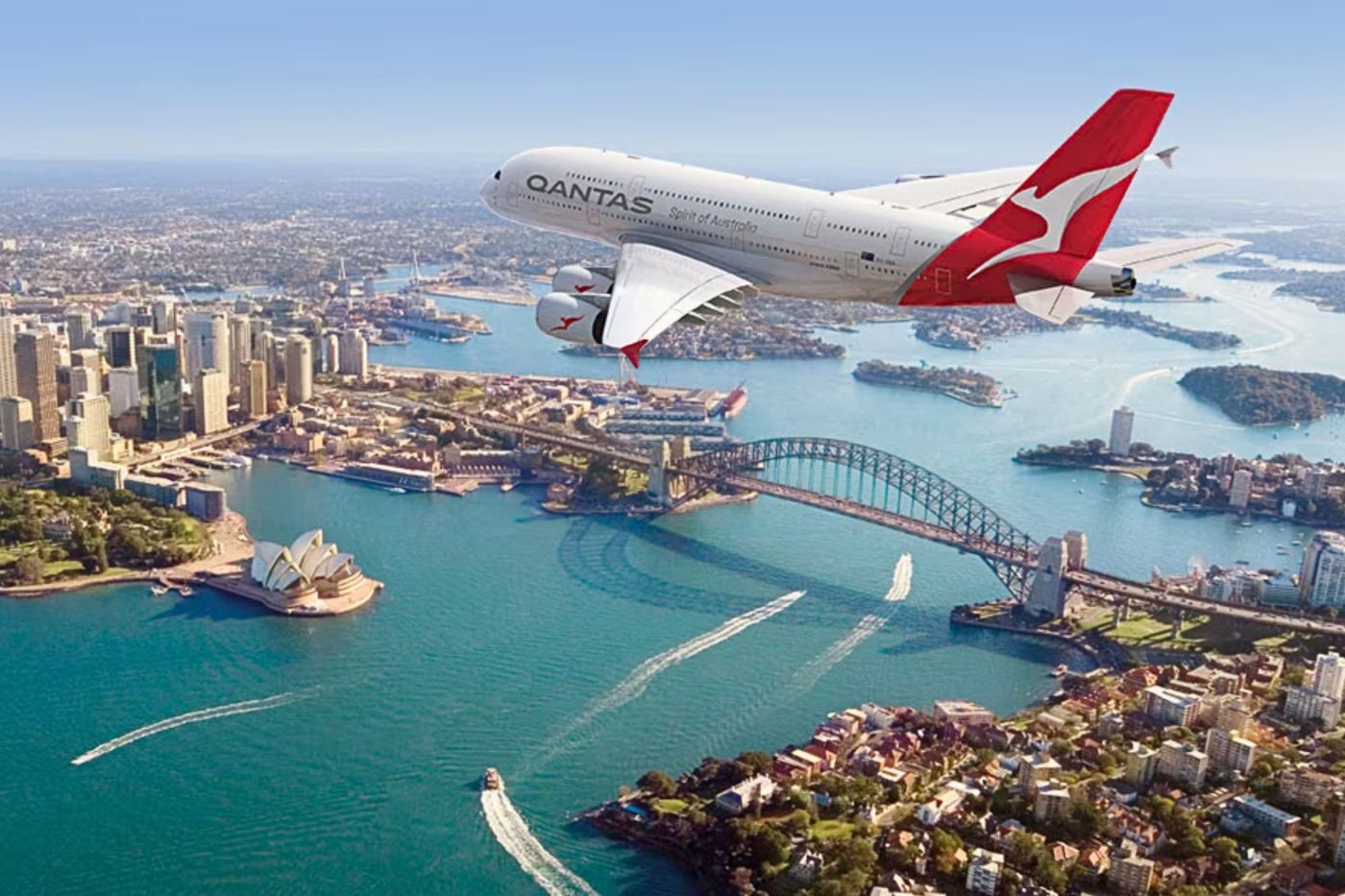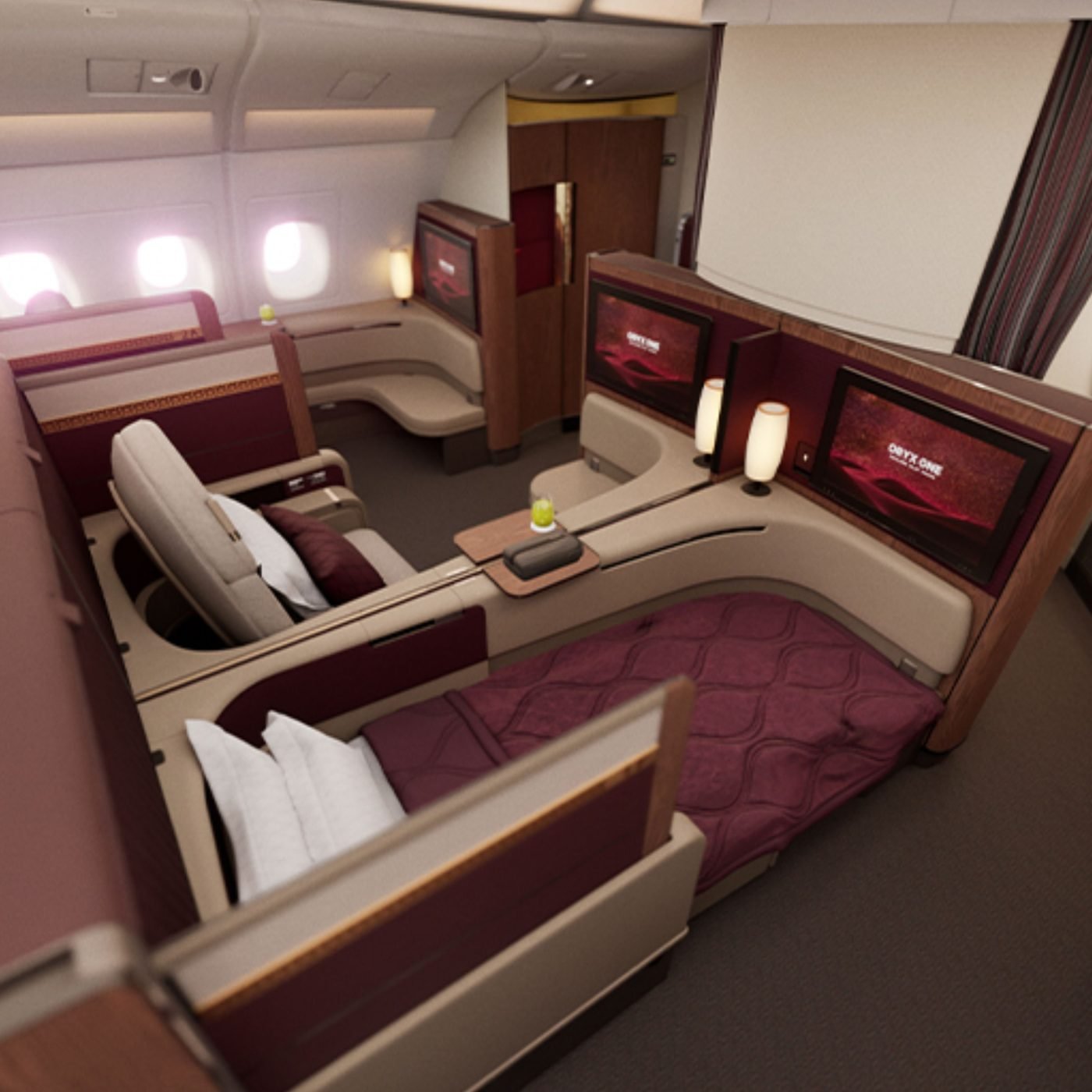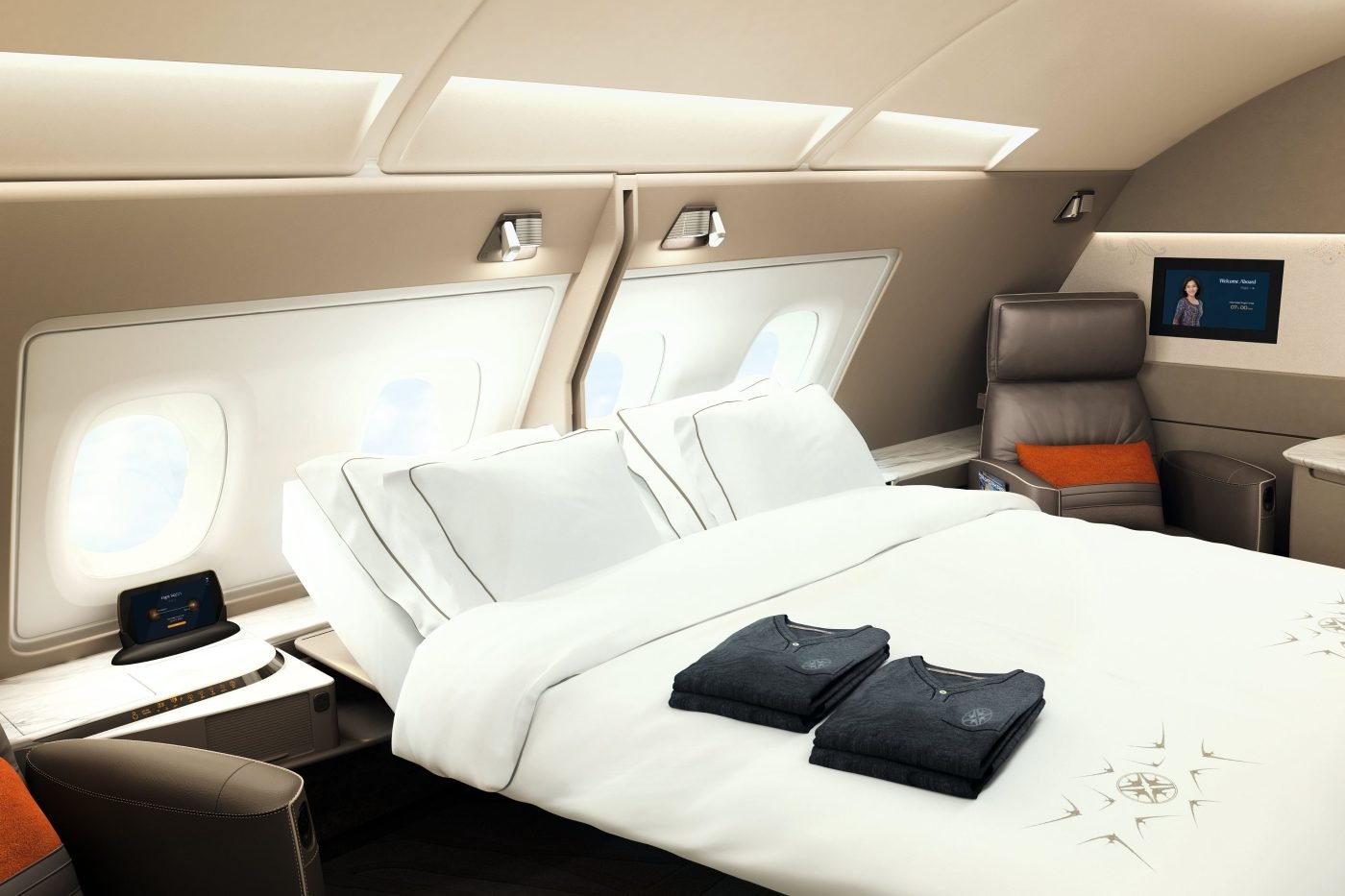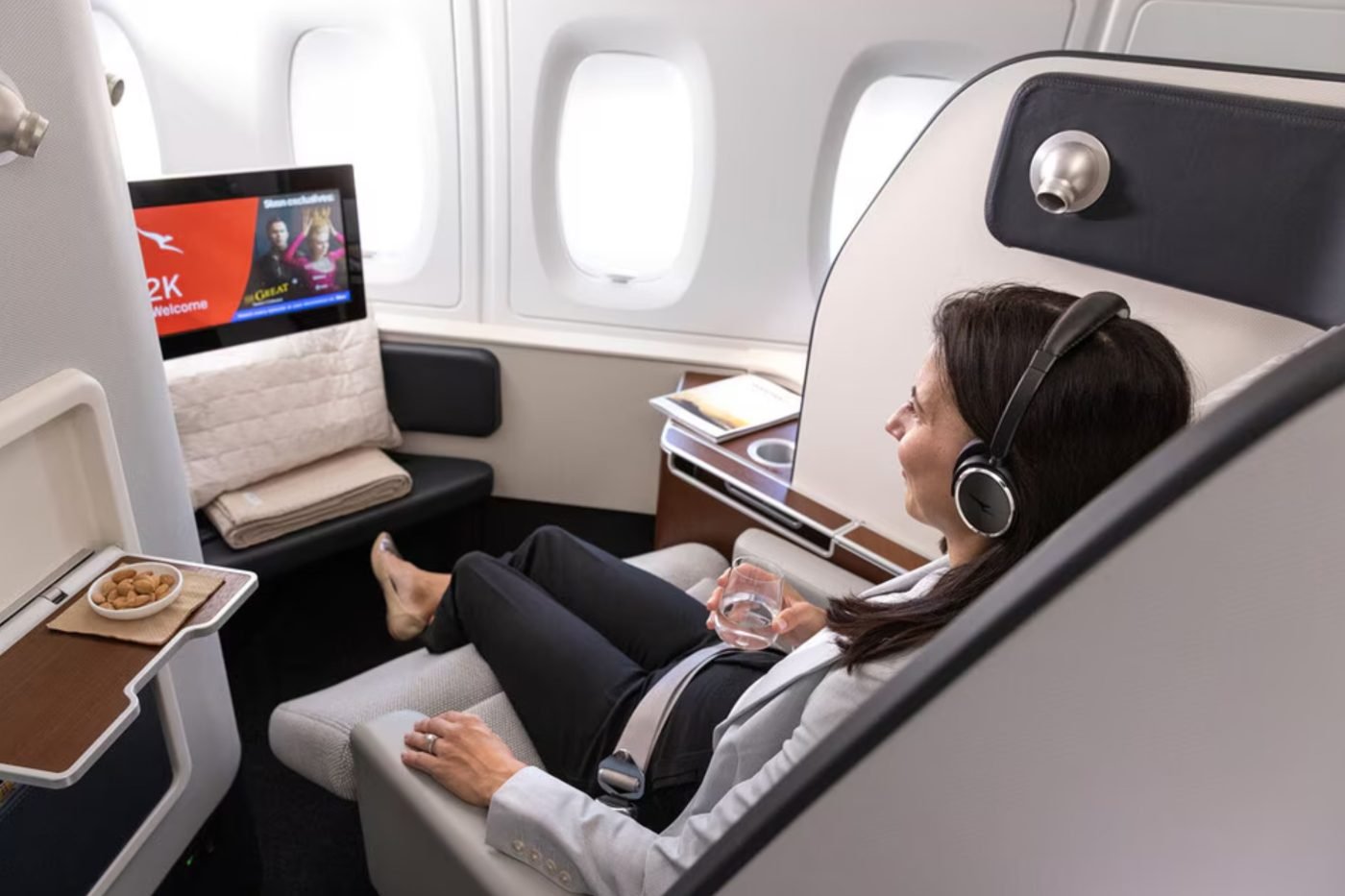- Business Class passengers paying up to $9,000 are still subject to the worst airborne etiquette: farting.
- Cabin pressure makes everyone’s gut expand by around 30 percent, increasing the urge to let it out.
- From Qantas lounge squid to airport burritos, food choices before boarding can decide whether your flight is smooth sailing or a gas chamber.
There are very few things more confronting on a plane than when someone in your row decides to fill the cabin with the smell of deep regret. As I write this, the culprit sits in either 8K or 6K, smug in the belief that their silent bombs are going unnoticed. They are not… and this inescapable sensory ambush has to be called out once in a while.
When you are locked into a pressurised tube with recycled air being pumped around at 40,000 feet, a single person’s digestive rebellion quickly becomes everyone’s problem. It’s enough to have your first class ticket revoked.

We do not hand over thousands for a seat in Business Class just to suffer through someone else’s bad manners. The average return ticket on a long-haul Business Class flight sits somewhere between six and nine thousand dollars.
For that money, Business and First Class passengers should feel entitled to a sense of comfort, space, and a touch of luxury, not the sensation of sitting in a dutch oven with flatulent strangers, whose own bowel movements can be the differece between an enjoyable in-flight experience and the plot of a straight-to-streaming horror. In a world where airlines monetise every inch of the cabin, basic courtesy should be non-negotiable.
Curated news for men,
delivered to your inbox.
Join the DMARGE newsletter — Be the first to receive the latest news and exclusive stories on style, travel, luxury, cars, and watches. Straight to your inbox.
Why Flying Turns Your Stomach Into A Balloon
The uncomfortable truth is that farting on flights is not always about poor manners. It is also science. At cruising altitude, the drop in cabin pressure causes the gas in your intestines to expand by around thirty percent.
What felt like a manageable twinge on the ground suddenly turns into a pressing need to relieve the pressure. Multiply that across hundreds of passengers and you can imagine the unseen struggle happening behind every tray table.

That means the chicken korma you wolfed down at the airport food court is going to do its best Houdini impression mid-flight. Every single human on board is battling the same physics, but some choose to play it discreetly while others go full open-throttle like they’re gunning for a Guinness record.
And then there are the indulgences we convince ourselves are worth it. For me, it is Neil Perry’s salt and pepper squid in the Qantas First Lounge. It is fried, iconic, and impossible to refuse. Ten minutes of bliss in the lounge turns into ten hours of trench warfare once you’re strapped in at 40,000 feet. It’s proof that even the fanciest pre-flight meals can set you up for mid-air regret.
The Etiquette That Vanishes At 40,000 Feet
The science explains the gas. What it does not explain is why so many passengers abandon basic etiquette the moment they sit down in a premium cabin.
You would not let rip in a taxi. You would not do it in the back of an Uber or on a packed commuter train. Yet something about the leather seat, the champagne flute, and the push-button service seems to embolden certain travellers to act like complete degenerates.

Maybe it is the lifestyle. Maybe it is the sense of entitlement that comes from pressing a button and having a smiling flight attendant appear at your side with another gin and tonic. Whatever the reason, it strips away the very civility that Business and First Class are supposed to represent.
The Real Price Of Poor Manners
The entire promise of premium travel is supposed to be based on comfort and exclusivity; flat beds, fine wine, and lounge access are meant to elevate you above the chaos of Economy.
But no amount of champagne, caviar or Qatar-branded pyjamas can mask the discomfort of being trapped in a sealed chamber with someone else’s digestive fallout. It only takes one inconsiderate neighbour to ruin a journey you paid handsomely for.

Flying already tests patience through delays, queues, and security checks. By the time you make it to your seat, all you want is to relax. Instead, you find yourself sitting rigid, trying to inhale through your blanket, praying the offender runs out of ammunition. This is the reality of airborne bad manners.
So next time you feel a little turbulence in your stomach, remember: the seatbelt sign may be on, but consideration for your neighbours should be too. Or at the very least, skip the squid. Especially if you’re in 8K.

